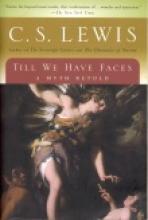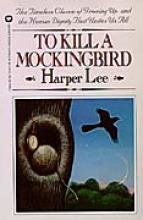No name
The Young Life of Pope John Paul II
This short chapter book on the life of Pope John Paul II focuses on his childhood and upbringing in Poland. He had a difficult childhood, losing his mother when he was only a boy and his only brother and his father when he was only a young man. We see him draw closer to God during these troubles and eventually discover his vocation to the priesthood during the terrible days of World War II. The story also decribes some of the happier and even humorous moments of his childhood and children will see that in many ways he was an "ordinary" boy destined for unordinary things. Mrs. Mohan is not a great writer, but those weaknesses are compensated for by the greatness of "the story" itself. The text is illustrated with pen and ink drawings (again, somewhat on the mediocre side). The appendix includes a timeline of the Holy Father's life, some quotations by and about the Pope, a somewhat complex map of Poland, a glossary and an index. There is a list entitled "Further Reading". Some of these titles, while perhaps having some informational value in researching a book on the Pope, should not be considered recommended reading, especially for children. (One of the titles was written by Andrew Greeley who might readily be described as a pseudo-Catholic). Also, since the writing of this book there are more good comprehensive resources available about the Holy Father's life, such as Witness to Hope by George Wiegel.
There's a Frog in My Throat
Through the Year with Mary
Till We Have Faces
Tin Cups & Tinder
To Kill a Mockingbird
To Whom Shall We Go?
The message - this is sledgehammer-clear - the message that Our Lord is trying to teach us in this famous episode: notice, as long as St. Peter keeps his eyes on Christ, he's doing fine. He can walk on water. The winds, the terrible storm, the ferocious waves, and the darkness don't bother him. But the moment he gets distracted, the moment he turns his gaze from the Lord, the moment Peter loses sight of his goal, what happens? He sinks!In this chapter he encourages us to have a firm purpose in our life. He encourages us to keep our gaze on Christ by being "conscious of the life of God within my soul" and through prayer. Here's another great example of the helpful pastoral thought he provides in this book:
Despair will never be ours if we believe in the power of the sacrament of Penance and tap into it very often. This sacrament helps us avoid both extremes - the presumption of the Pharisees and the despair of Judas - and it keeps us, with St. Peter, int he healthy center. Contrite? Yes, but confident in the Lord's mercy. Aware of the sin? You bet, but equally aware of Christ's desire to forgive. Repentant? You bet, but renewed as well. And for us, the is moment of honesty and healing takes place, concretely and personally, in the sacrament of Penance.Here are the other chapters presented in this book: 2. "Noticing the Wind" (This continues the story about walking on water and focuses on being aware of what dominates our lives - what things distract us from God, etc.) 3. "Silently Being with Our Lord" (Based on the story of St. Peter at the Transfiguration) 4. "Embracing Our Cross" (Based on the story of Jesus trying to convince Jesus not to go to Jerusalem where he will suffer and die.) 5. "How Do We Let God Love Us?" (From the story at the Last Supper of Peter not wanting Jesus to wash his feet.) 6. "Do You Love the Lord?" (From the story after the Resurrection of Jesus asking Peter to "Feed my lambs.") 7. "Put Out Into the Deep" (The story of the miraculous catch of fish where Jesus exhorts Peter: "Do not be afraid; henceforth you will be catching men.") 8. "Asking Our Lord for Forgiveness" (Peter's betrayal of Jesus) 9. "To Whom Shall We Go?" (Title story - when a number of Jesus' disciples have left Him and He asks Peter if he will leave too - Peter responds "Lord, to whom shall we go? You have the words of eternal life...") 10. Afterword: "Neither Silver Nor Gold" (Based on the story from the Acts of the Apostles in which Peter meets a beggar and tells him, "I have no silver and gold, but I give you what I have; in the name of Jesus Christ of Nazareth, walk.") The reality the good Archbishop presents here is very realistic, but also very hopeful. Consider his reflection on the financial troubles that have befallen the Church in the wake of the sex abuse scandals:
Maybe it's not such a bad thing that, because of all the upheaval, all the scandals, all the shortages of priests, all the lawsuits, and everything else that's gone on the last forty tumultuous years, we don't have silver and gold anymore. We can barely pay our bills. But what we've got, we're clinging to: the pearl of great price, the most priceless treasure of all, Jesus Christ. And if all this disgrace, and sadness, and shock of the last four decades - all the turmoil that we've gone through in the Church - if that has driven home the centrality, the utter centrality of Jesus, maybe it's not such a bad thing."I think this book is very accessible for both teens and adults and would be particularly well-suited to a discussion group. I am very grateful to the Archbishop for this lovely little book.
Tomie de Paola's Book of Bible Stories
Tomie de Paola is a unique illustrator with artwork in a woodcut or icon-like style (I can't decide which.) I thought his artwork was more suited to The Lady of Guadalupe but I like the content of his Bible stories and appreciate the "Index of Bible Text" in the back. This would be a suitable book for acquainting preschoolers with the major stories of the Bible.
I have found that some stories are a little hard to understand because too many details have been left out in making them simpler for young children. I was bothered by the fact that the Crucifixion scene is so simplified that both thieves mock Jesus - missing entirely one of the most beautiful stories in the Bible, of the good thief. Also, quite simply, I have a big pet peeve about stories and movies that turn a real-life good guy into a bad guy for the sake of the story or artistic license.









